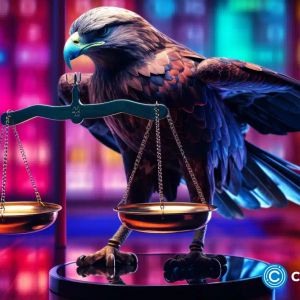Coinbase to Supreme Court: IRS crypto dragnet was unconstitutional
2 min read
Coinbase filed an amicus brief in a U.S. Supreme Court case involving crypto and potential IRS privacy violations. In a case challenging the Internal Revenue Service’s handling of user crypto data, Coinbase was the latest to weigh in. On April 30, the exchange filed an amicus brief to the U.S. Supreme Court in the Harper vs IRS case, advocating for more privacy protections when it comes to crypto transactions. Back in 2016, the IRS requested data on 14,000 of Coinbase’s customers, in an attempt to find any evidence of tax evasion. The agency relied on the third-party doctrine, which states that once users voluntarily share data with a third party, like a crypto exchange, they forfeit their privacy protections. In response, Bitcoin researcher James Harper sued the IRS in 2020, accusing it of overreach. Supreme Court should redefine privacy protections: Coinbase In its brief to the Supreme Court, Coinbase argued that this doctrine is outdated, especially when it comes to crypto transactions. Notably, Coinbase believes that crypto exchanges are more similar to platforms than crypto custodians. Instead of broad searches, the IRS should have probable cause when it comes to requesting information. You might also like: Coinbase calls for policy change to let SEC workers hold crypto “The John Doe summons that Coinbase resisted and that led to the government’s acquisition of Harper’s personal and financial information was not only unlawful. It was unprecedented in its sweep. The summons targeted 14,355 Americans. The IRS did not have particularized reasonable suspicion that a single one of them was evading his or her tax obligations,” Coinbase The Supreme Court is the highest court in the U.S. and one that has unparalleled influence on the legal system. Any ruling it makes automatically becomes legal precedent, and both the courts and the executive branch have to abide by it. If the Supreme Court sides against the IRS in this case, its ruling would fundamentally change the government’s powers when it comes to protecting user privacy. Read more: Coinbase calls on remaining US states to drop confusing staking lawsuits

Source: crypto.news



